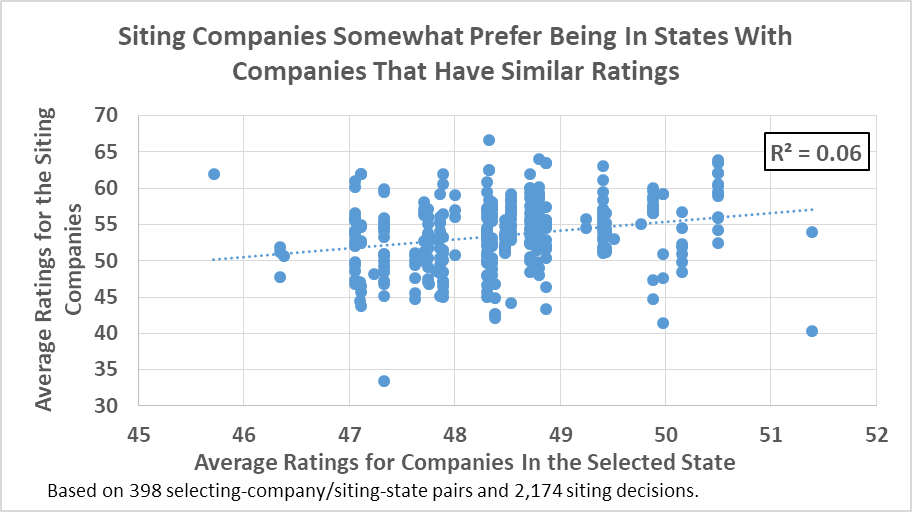Great States: Great Companies and ESG Practices
By Bahar Gidwani, Skytop Contributor / August 17th, 2022
Bahar Gidwani is CTO and Co-founder of CSRHub. Bahar has built and run large technology-based businesses for many years. Bahar holds a CFA (Chartered Financial Analyst) and was one of the first people to receive the FSA (Fundamentals of Sustainability Accounting) designation from SASB. Bahar worked on Wall Street with Kidder, Peabody, and with McKinsey & Co. He has founded several technology-based companies and is a co-founder of CSRHub, the world’s broadest source of corporate social responsibility information. He has an MBA from Harvard Business School and an undergraduate degree in physics and astronomy. He plays bridge, races sailboats, and is based in New York City.
Company Sustainability and Company Location
We first asked this question back in 2013. Back then, we had ratings on 1,453 US companies. We showed that crime rates and divorce rates seemed lower for the “good” states. It was hard to do much more with so little information.
Since then, our US coverage has grown to more than 13,000 entities. We’ve used data from Good Jobs First to show that companies that get caught violating laws end up with poorer perceived ESG performance. And, since 2016, we’ve done annual reviews with Site Selection Magazine on the connection between company sustainability and their decisions on where they locate new facilities.
This year’s review named Texas, Illinois, New York, and Arizona as the most attractive spots for sustainably-oriented companies to open new sites. A chart we prepared that was not included is interesting. It shows that there is a small correlation between the CSRHub rating of a company that is making a siting decision and the average sustainability of the entities in the state they select.
As you can see the “counting statistics” for this type of analysis are getting better. We can review thousands of siting decisions and through this, analyze the behavior of almost 400 companies. It seems reasonable that companies prefer opening new facilities in communities that share their social beliefs. A location’s community development plans, views on employee rights, pollution regulations, and governance rules are influenced by the companies that are “citizens” of that community. New entrant companies should be attracted to places that share their values, just as we all want to have neighbors that we like.
Much has been said recently about how the US is dividing into different camps. Our data shows that this may be true within the company site selection process. Companies with poor ESG practices may be gravitating towards locations that have other poor performing entities and vice versa. Does this add to the evidence the US needs to create more uniform rules on ESG related matters? Or should we allow “ghettos” to form where “bad” companies gather and hold back progress?


